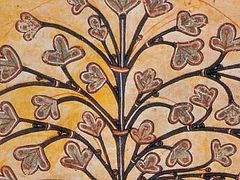Gordon Allport once spoke as follows about differences among people: “For some the world is a hostile place where men are evil and dangerous; for others it is a stage for fun and frolic. It may appear as a place to do one’s duty grimly; or a pasture for cultivating friendship and love” (Pattern and Growth in Personality). These differing outlooks and attitudes reflect something unique about how various individuals engage with the world that psychologists call personality. Of course, the fathers also recognized these differences. On this subject, Elder Joseph the Hesychast also wrote: “My child, know that there are great differences from man to man and monk to monk. There are souls with a soft character that are very easily persuaded. There are also souls with a tough character that are not subordinated so easily. They are as different as cotton is from iron. Cotton needs only to be rubbed with words, but iron requires fire and a furnace of temptation to be worked” (Letter 3, Monastic Wisdom). These differences in personality translate into differences in the Christian struggle to be free of specific passions and to acquire particular virtues. They also translate into differences in susceptibility to psychological difficulties and in the pathways to recovery.
Personality naturally plays its role in the development and maintenance of impulsivity. At this point, a technical definition of personality can clarify not that it is so, but how it is so. Authors Frederick R. Hine, George L. Maddox, Redford B. Williams Jr., Robert C. Carson, Redford B. Williams Jr. define personality as “an hypothetical construct referring to an organized system of reaction tendencies that mediates relations between the person and his/her environment, rendering the person’s behavior distinctive and more or less uniquely identifying…The construct is a complex one in that it refers not only to ‘surface’ behavior but also to purported underlying causes, its ‘dynamics,’ so to speak, whether or not these may be accessible to the consciousness of the individual involved.” In other words, impulsive people will react to life, to others, to the world, to their own emotions, to triggers in predictable ways that are based on their own unique psychological fingerprints that develop according to their unique life history and inherited natural traits. The inner world, both known and unknown, surfaces in behavior that makes manifest one’s personality and fits the grooves of one’s outer world like a key in a lock. In the case of a psychological difficulty, changing either the inner world or the outer world are the only pathways available to overcoming a difficulty.
Over the years, researchers have been able to fill out a sketch of the impulsive personality, noting those aspects of a person’s inner world that make that individual prone to impulsivity. Some of the personality traits that strengthen impulsivity include a tendency to think in black and white terms, to seek instance gratification, to have low self-esteem, to be irresponsible, and to not tolerate criticism. Behaviorally, people will be prone to seek out pleasurable activities in the moment, but to lack the determination and discipline required to reach long-term goals. In general, the impulsive personality will seek behaviors that maximize pleasure and minimize pain.
Since the pleasure/pain principle is a major determinative force in impulsive behavior this must be addressed in treatment of impulsivity and impulsive control disorder (ICD). Jon E. Grand and Brian L. Odlaug argue that, “Motivation for change should be addressed with the patient at the initial visit. Many aspects of ICD may result in lack of motivation to reduce or stop the behaviors. These behaviors are characterized by a hedonic quality—individuals find these behaviors rewarding or stimulating to some extent. For many people, their real desire is to prevent the negative consequences of the behavior, not necessarily the behaviors themselves. For example, many individuals with pathological gambling want to stop losing but may not want to stop gambling. Motivation interviewing may be particularly helpful in addressing the inherent ambivalence underlying these behaviors.” While behavior modification is important, the root causes of such behavior must also be addressed and overcome if an impulsive personality is to be transformed. Cognitive behavioral therapy seeks to identify triggers and patterns of thinking that lead to the impulsive behavior as well as behavioral strategies designed to counteract these desires.
The therapeutic regimen offered by the holy fathers tacks in a slightly different direction, based on a very different understanding of the human being’s inner world or personality. Human beings are more than a bundle of desires, aggressive impulses, and rational thought. They also have a faculty that the fathers call the nous, that part of human beings that can touch God and be touched by Him. Some may refer to it as the spiritual heart, but the term nous is preferable, because it cannot be confused with feelings or even thoughts. In the spiritually healthy person, the nous in contact with God guides the whole person including the reason, the desires, and ambitions. Reason, desire, and perseverance are neither autonomous, nor compartmentalized, but are perfectly unified in pure, prayerful communication with God. In the impulsive, this unity is shattered and the desire lashes out in this direction and that, being unchecked by the reason that is left powerless without help from God present in the person who (whose nous) prays unceasingly with simplicity. All of this means that for the fathers, the personality changes needed to deal with impulsivity, or any other passion for that matter, are more drastic than just modifying a person’s thoughts or reaction to pleasurable or triggering stimuli. What needs to be changed is precisely one’s connection with God that can bring wholeness, harmony, and health to the soul including the desires of the heart.
Thus, the patristic prescription for the treatment of the impulsive personality, or any passionate personality for that matter, is purification through the nous attending to watchfulness and prayer. The task at hand concerns the Pauline exhortation, “Present your bodies a living sacrifice, holy, acceptable to God—and be not conformed to this world, but be transformed by the renewal of your mind [ἀνακαινώσει τοῦ νοὸς]” (Romans 12:2). On this matter, Hieromonk Damascene notes, “In Orthodox theology, the nous is the highest faculty or power of the human soul. It is the faculty that knows God directly; it is the seat of our personhood, which experiences the Person of God in a communion of love. St. Gregory Palamas and other Holy Fathers say that it most precisely defines what is the ‘image of God’ in us…When we practice watchfulness with the help of the Jesus Prayer, we make our soul open to receive the Grace of the Holy Spirit, which transforms us and deifies us. We are no longer repelling Grace, but attracting it. We are calling upon Christ to have mercy on our darkened souls, to dwell within us more fully, to fill us with His unending Life, with the Light of the Holy Spirit Whom He has sent from the Father (cf. John 15:26). Thus our darkened nous is illumined by the Light of the Uncreated Grace of God. ‘Only the Holy Spirit can purify the nous,’ writes St. Diadochos of Photiki in The Philokalia. ‘In every way, therefore, and especially through peace of soul, we must make ourselves a dwelling-place for the Holy Spirit. Then we shall have the lamp of spiritual knowledge burning always within us” (The Way of Spiritual Transformation).
In practical terms, instead of the attention turning back and forth between me and my wants in the outside world, the attention turns cyclically inward towards God in connection to me as expressed by the prayer, “Lord Jesus Christ have mercy on me.” In so doing, the outside objects from the environment lose their fierce, emotional pull becoming simple, dispassionate concepts in the mind, and the heart or nous becomes clear of emotionally charged concepts, good and bad. Then the nous can indeed oversee the reason, the desires, and the aggressive faculties of the soul and easily direct them in fulfilling the will of God. Father John Romanides defines the spiritual sickness at the root of all passions, including impulsivity, as the noetic energy “not functioning properly” with a “nous full of thoughts, not only bad thoughts, but good thoughts as well” (Patristic Theology, p.24), even though the nous is meant to be full of God and only the reason to be full of thoughts. By the prayer of the heart, one’s communion with God changes, the influence of the thoughts in the mind change, the desires change, the behavior changes, the person changes, for the One Who now sits on the throne of the heart says, “Behold, I make all things new.” (Revelations 21:5).
The healing of the impulsive personality requires the intervention and assistance of Divine grace from the Holy Spirit. Our task is to watch over our thoughts, continuously and humbly asking Christ for His mercy with all the power of our attention, with all the power of our soul. And when a thought gets triggered from within or without, instead of chasing after it, we continue patiently to call out, “Lord Jesus Christ have mercy on me.” And in the process we learn, in the words of Abba Poemen, how to “eat without eating, drink without drinking” (Apothegmata, 13); in other words, to keep our primary focus on God, whatever we do, whatever we see, whatever we think, whatever we feel. Then, all will be as it should be. The once impulsive personality is transformed by grace into the likeness of the divine person of Christ Himself so that he or she is able to exclaim with Saint Paul, “I am crucified with Christ: nevertheless I live; yet not I, but Christ liveth in me: and the life which I now live in the flesh I live by the faith of the Son of God, who loved me, and gave himself for me” (Galatians 2:20).




